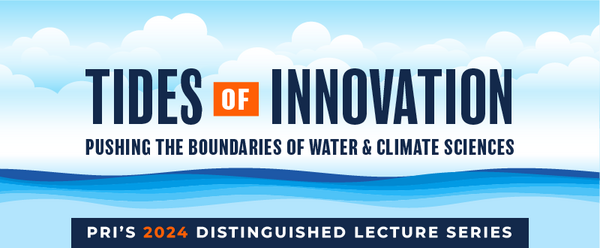
ISWS Seminar | Causal Fingerprints: Characterizing Environmental Interactions from Data and Models | Allison Goodwell
- Event Type
- Seminar/Symposium
- Sponsor
- PRI's 2024 Distinguished Lecture Series
- Location
- Illinois Room at the Illinois State Water Survey, 2204 Griffith Dr., Champaign, IL 61820-7463
- Virtual
- Join online
- Date
- Apr 17, 2024 3:00 - 4:30 pm
- Speaker
- Mike Fienen, Research Hydrologist, USGS Upper Midwest Water Science Center, Madison, Wisconsin
- Views
- 53
As the Earth system is changing increasingly rapidly, observations are increasing in spatial and temporal resolution, and models are increasing in number and complexity. These conditions enable, and necessitate, methods for causal inference in environmental systems that go beyond traditional correlation-based techniques and model predictive performance metrics. This talk will introduce a framework for causal discovery anchored in Information Theory, which focuses on uncertainties and reductions in uncertainties in observed or modeled time-series variables. These techniques are applicable to a wide range of complex systems ranging from neurobiology to climate science. Specifically, I will discuss applications to understand causal interactions in complex ecohydrologic systems from meteorological and flux tower data, the predictability of rainfall occurrence and streamflows, and the “functional” performance, or the extent to which models replicate relationships, of land-atmosphere models. These examples range from pairwise relationships between variables to multivariate types of interactions. In general, they are part of the “causal revolution” to integrate expert knowledge, increased observational data, and state-of-the-science techniques to better understand and predict Earth system processes.
Allison Goodwell is a visiting research scientist at the Prairie Research Institute at the University of Illinois Urbana-Champaign. Her research focuses on understanding causal interactions and dependencies in complex ecohydrologic systems based on models and data. She received her Ph.D. from University of Illinois in 2017 in Civil and Environmental Engineering and was an assistant professor in Civil Engineering at the University of Colorado Denver from 2018–2023. She has received funding for her research from NSF (CZ Cluster: Critical Interface Network in Intensively Managed Landscapes) and NASA (New Investigator Program) and is excited to be a part of the PRI team.